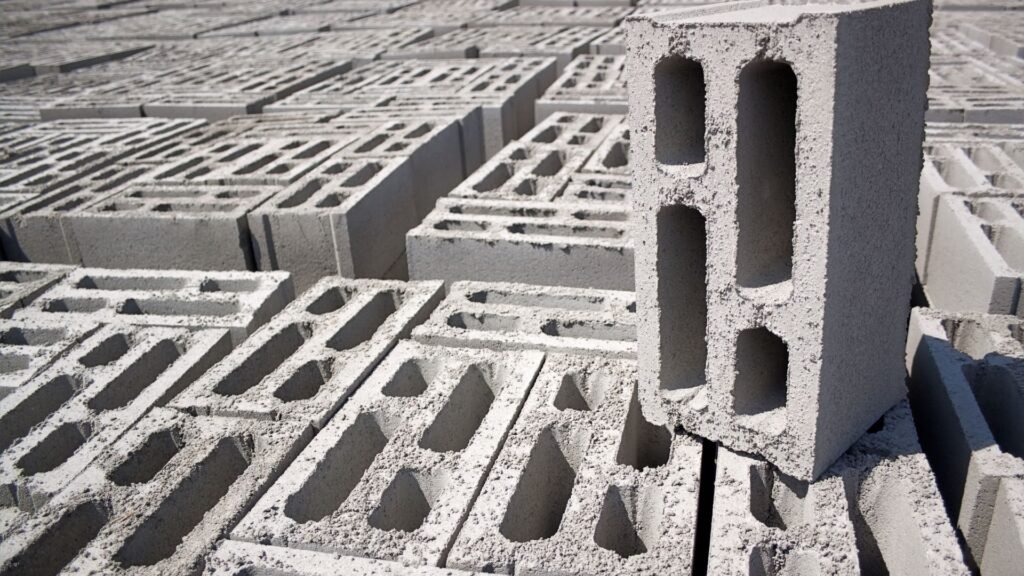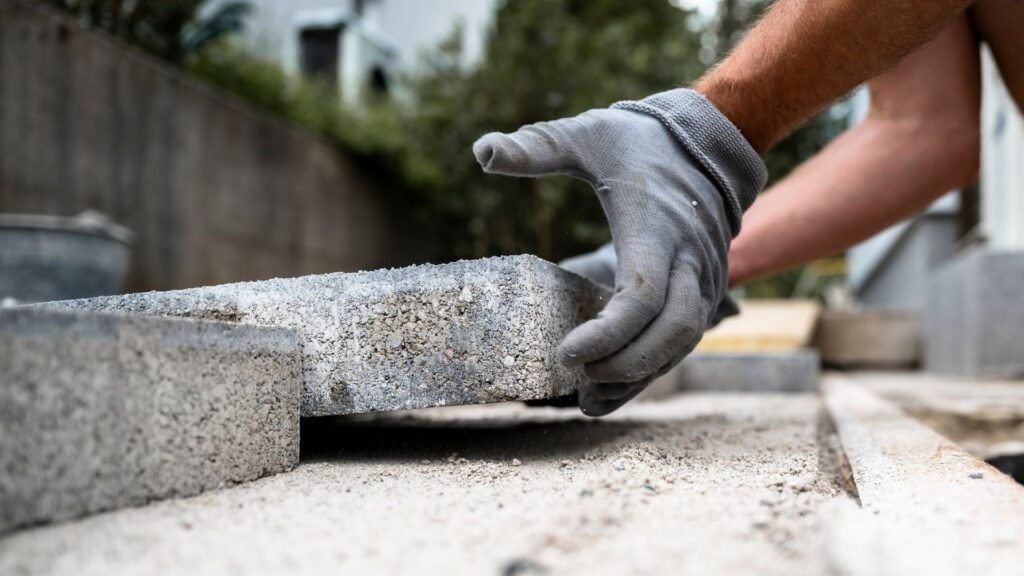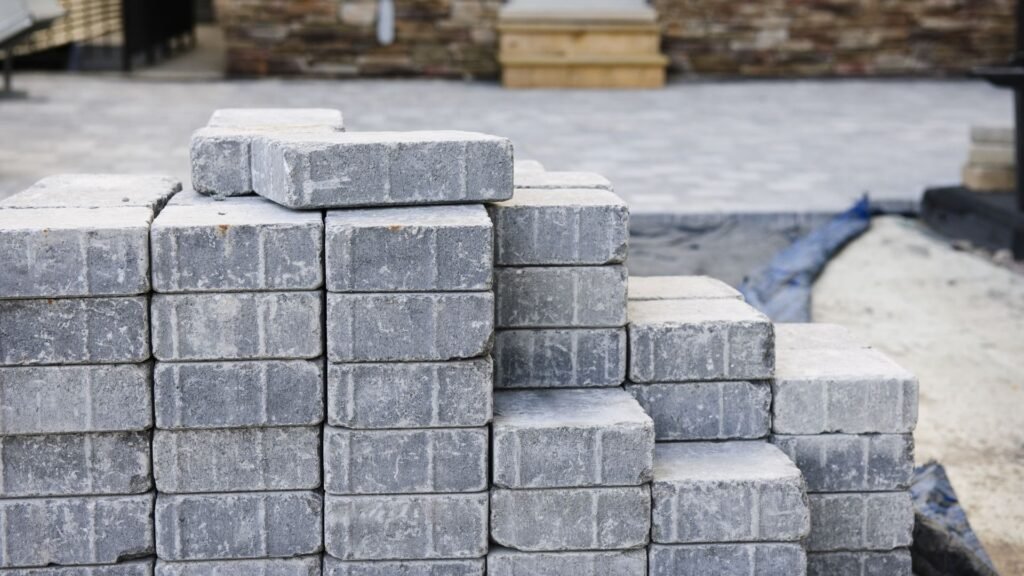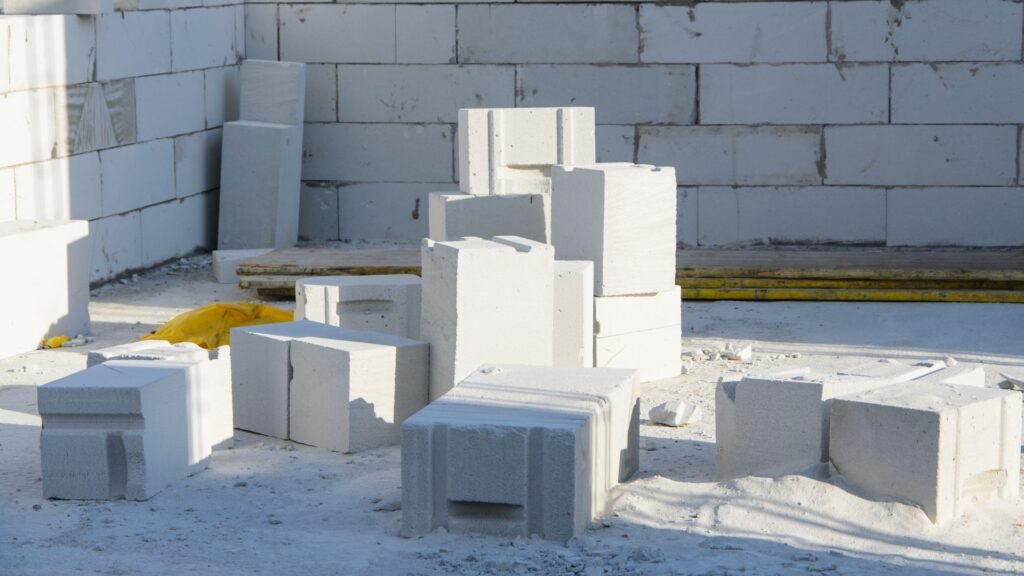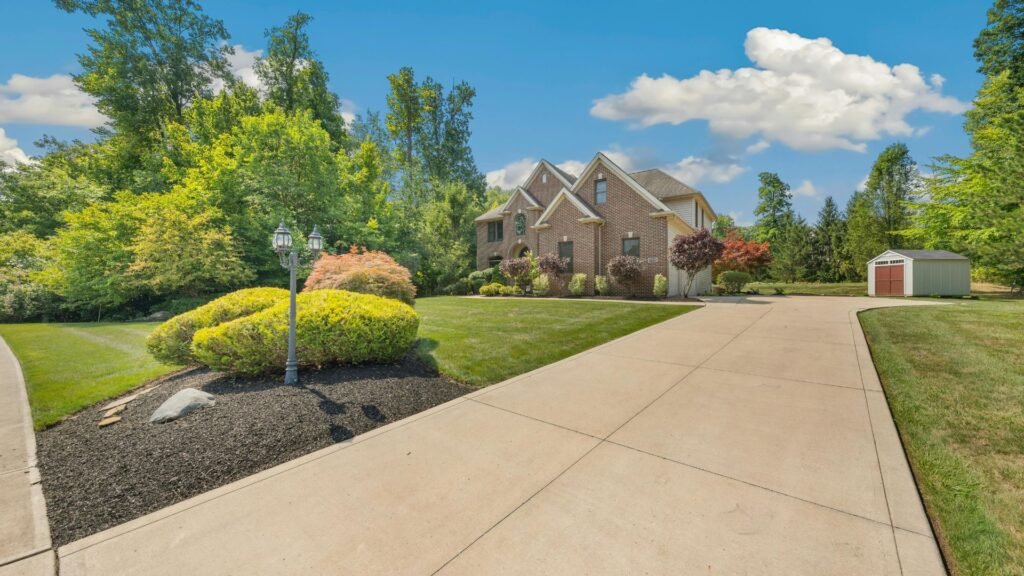Welcome to your go-to guide on concrete block prices in NZ. Whether you’re planning a DIY project or budgeting for a larger construction job, knowing how much concrete blocks cost can help you make smarter decisions. In this post, you’ll learn what affects the price, the types available, where to buy, and how to get the best deal. We’ll break down everything you need in plain language, so you can choose the right option for your needs without overpaying or getting lost in technical details.
Concrete block price NZ ranges from $2.50 to $5.50 per block, depending on the type, size, and supplier. Bulk orders, location, and delivery fees can affect the final cost. Standard 390x190x190mm blocks are commonly used in residential and commercial projects across New Zealand.
Table of Contents
What Are Concrete Blocks Used For?
Concrete blocks are a staple in many building projects across New Zealand. Their strength, durability, and affordability make them a go-to option for both homeowners and contractors. If you’re planning a project and wondering whether concrete blocks are the right material, understanding their uses will help you decide with confidence.
Common Residential Uses
In homes, concrete blocks serve both structural and decorative purposes. One of the most common uses is for retaining walls. These walls help hold back soil on sloped land, prevent erosion, and create level spaces for gardens or patios. Because concrete blocks are strong and resistant to weather damage, they’re ideal for this purpose.
Concrete blocks are also widely used in foundations. Many homes in New Zealand are built on concrete block foundations because they can bear heavy loads and offer long-term stability. They’re moisture-resistant, which helps protect the home from ground-level water damage.
For fencing, concrete blocks offer a solid alternative to timber. They create a sturdy, low-maintenance barrier that’s perfect for noise reduction and security. Unlike timber fences, concrete block fences don’t rot, warp, or need regular painting.
Commercial And Landscaping Use
In commercial construction, concrete blocks are often used for warehouse walls, retaining structures, and perimeter fencing. Their uniform size and shape make them easy to work with on large-scale builds, saving time and labor costs. They’re also fire-resistant, which adds an extra layer of safety in commercial settings.
Landscapers use concrete blocks to create raised garden beds, garden walls, seating areas, and steps. With decorative options available, like split-face blocks, these projects can blend function with visual appeal. The ability to stack and shape blocks makes them ideal for creative outdoor designs that last for years.
Why They’re A Popular Choice In NZ Construction
Concrete blocks are a popular choice in New Zealand for good reason. The country’s varied climate demands materials that can handle wet weather, UV exposure, and occasional seismic activity. Concrete blocks tick all those boxes.
They’re locally available, which helps keep costs down and supports quicker project timelines. Many New Zealand suppliers also produce blocks in eco-friendly ways, making them a smart option for those conscious about sustainability.
Their long life span, minimal upkeep, and versatility across building types make concrete blocks a smart investment. Whether you’re building a new home, fixing up a yard, or planning a commercial site, concrete blocks give you strength, value, and peace of mind.
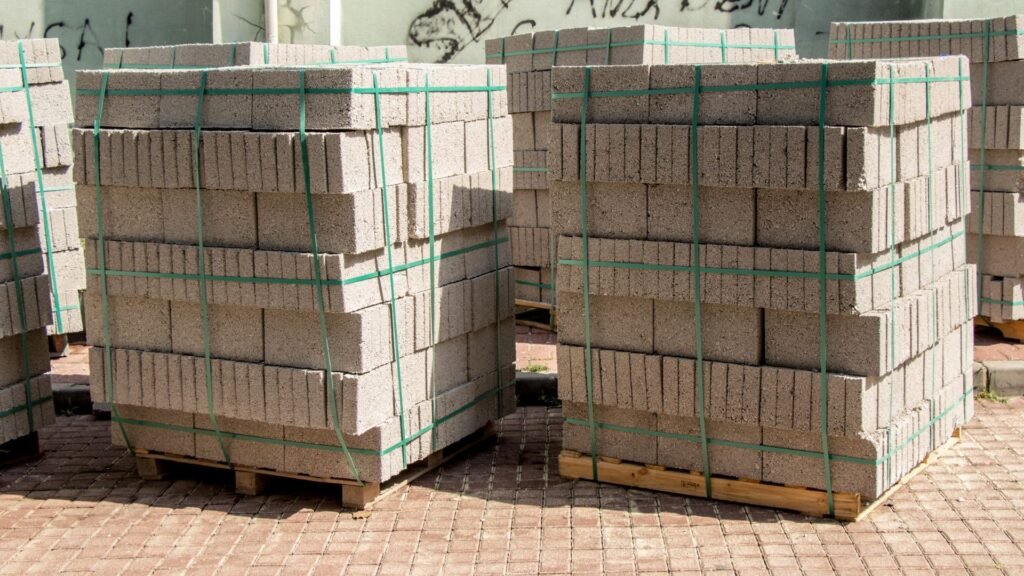
Types Of Concrete Blocks Available In NZ
When planning a construction or landscaping project in New Zealand, choosing the right type of concrete block can make a big difference. Each block type serves a specific purpose, whether you’re building a retaining wall, fence, foundation, or outdoor feature. Knowing the differences between them helps you avoid overpaying or using the wrong material.
Below, we break down the most common types of concrete blocks available in NZ. This section will guide you through their uses, features, and how to choose the best option for your project.
Hollow Blocks Vs. Solid Blocks
Hollow concrete blocks are widely used in modern construction due to their lightweight nature and ease of handling. They have hollow centers, which make them easier to stack and fill with reinforcing materials like steel or concrete. These blocks are ideal for load-bearing walls, boundary walls, and larger structures where strength and support matter.
On the other hand, solid blocks are denser and heavier. They contain little to no hollow space and are commonly used where extra strength, insulation, or soundproofing is needed. They’re perfect for applications like garden walls, heavy-duty foundations, and certain commercial builds.
Standard Sizes (e.g., 390x190x190mm)
In New Zealand, the most common concrete block size is 390mm x 190mm x 190mm. This standard size is suitable for most general building purposes, including both residential and commercial projects.
Other available sizes include:
- 390mm x 190mm x 140mm (narrower option for non-load-bearing walls)
- 290mm x 190mm x 140mm (compact builds or smaller spaces)
Choosing the right size depends on your wall design, structural requirements, and layout. Always check with your supplier or builder to match the block size with your plans.
Decorative Vs. Structural Blocks
Decorative concrete blocks are designed for visual appeal. These may include textured finishes, patterns, or color treatments. They’re commonly used for fences, garden walls, feature facades, or outdoor entertainment areas. While some decorative blocks offer structural integrity, they’re typically chosen more for style than strength.
Structural blocks, by contrast, are built for performance. They form the foundation of homes, commercial buildings, retaining walls, and any load-bearing structure. These blocks focus on function, not aesthetics.
If your project needs both strength and a good look, consider combining structural and decorative blocks strategically.
Specialty Blocks (Corner, Lintel, Split-Face)
Beyond standard and decorative blocks, there are specialty options for specific tasks:
- Corner Blocks: These are designed to create smooth 90-degree angles, commonly used at the edges of walls or openings.
- Lintel Blocks: Shaped to support door and window openings, these blocks allow reinforcement to pass through and are usually filled with concrete.
- Split-Face Blocks: These have a rough, textured face that mimics natural stone, ideal for decorative applications with a solid core.
These specialty blocks can simplify construction and enhance both the appearance and strength of your project.
Concrete Block Types And Their Common Uses
| Block Type | Best For | Key Feature |
| Hollow Block | Load-bearing walls, fencing, foundations | Lightweight, can be reinforced |
| Solid Block | Garden walls, foundations, noise control | Dense, strong, better insulation |
| Decorative Block | Facades, outdoor features, landscaping | Patterned or colored finish |
| Corner Block | Wall corners or turning points | Designed for smooth angles |
| Lintel Block | Openings (doors, windows) | Supports load with internal reinforcement |
| Split-Face Block | Decorative and functional outdoor use | Natural stone texture |
Choosing the right concrete block comes down to function, appearance, and build requirements. By understanding the different types available in NZ, you’ll be better equipped to plan, budget, and build with confidence.
If you’re unsure which block to choose for your project, reach out to local suppliers or talk to a builder for tailored advice.
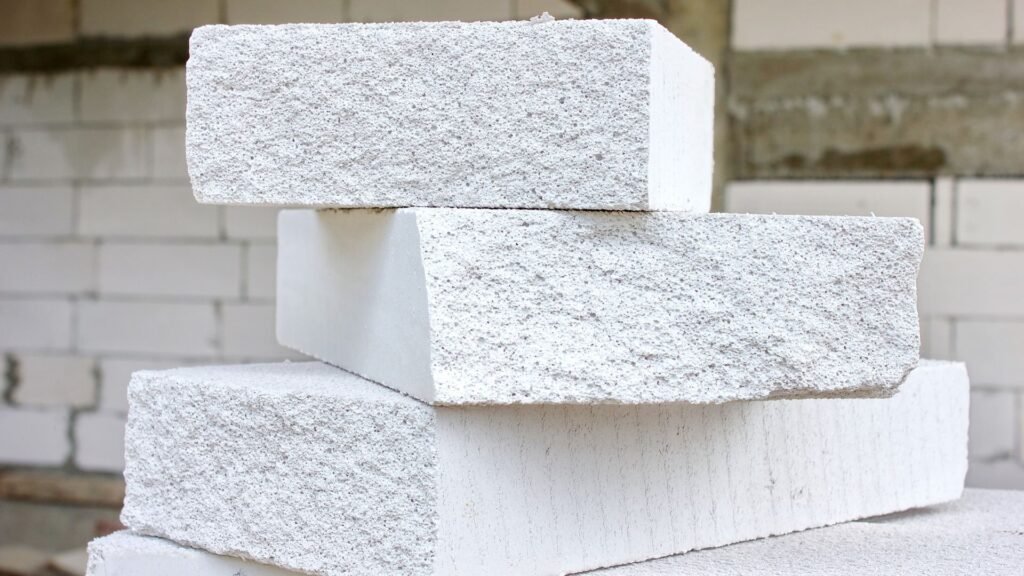
How Much Do Concrete Blocks Cost In NZ?
If you’re planning a build, one of the first questions you’ll ask is, “How much do concrete blocks cost in NZ?” This is a key consideration for budgeting any project, whether you’re putting up a retaining wall, building a garage, or working on a larger commercial structure. Concrete block prices can vary, so it’s useful to understand what goes into the cost before you buy.
Price Per Block In New Zealand
In most areas of New Zealand, standard concrete blocks range from $2.50 to $5.50 per block. The price depends on the size, type, and supplier. For example:
- A basic hollow block (390x190x190mm) might cost around $2.50 to $3.50.
- Solid blocks or specialty types like corner blocks or split-face designs can go up to $4.50 or more.
- Decorative or architectural concrete blocks often fall at the higher end of the scale.
These prices are for individual units and may change based on volume, location, and availability.
Rough Cost Per Square Meter
If you’re working out your total project cost, you’ll also want to know how much concrete blockwork costs per square meter. A general rule is:
- 12 to 13 standard blocks are needed per square meter (based on standard sizing and typical mortar joints).
- This brings the estimated material cost to about $30 to $65 per m², depending on the type of block used.
Keep in mind, this estimate doesn’t include mortar, reinforcement, or labor, just the block material itself.
Regional Price Differences
Where you live in New Zealand can also impact the cost. Concrete block prices vary across regions due to transport, demand, and supplier availability. For example:
- Auckland: Prices may be slightly higher due to increased demand and urban delivery charges.
- Christchurch: More competitive pricing is common, with easier access to local manufacturers.
- Rural areas: Expect additional delivery costs or limited local supply, which may push prices up.
Always compare quotes from local suppliers in your area to find the best deal.
Delivery Charges And Bulk Discounts
Delivery fees are often added on top of the base price and can range from $80 to $150, depending on distance and order size. Some suppliers offer free delivery within a certain radius or on orders over a specific quantity.
If you’re ordering for a larger project, ask about bulk pricing. Many suppliers will reduce the per-block price for pallet-sized or full-truckload orders. This can significantly lower your total cost if you’re buying hundreds or thousands of blocks.
Understanding the full cost breakdown helps you make smart decisions and avoid surprises. Always factor in not just the block price but also delivery, quantity, and regional differences before finalizing your order.
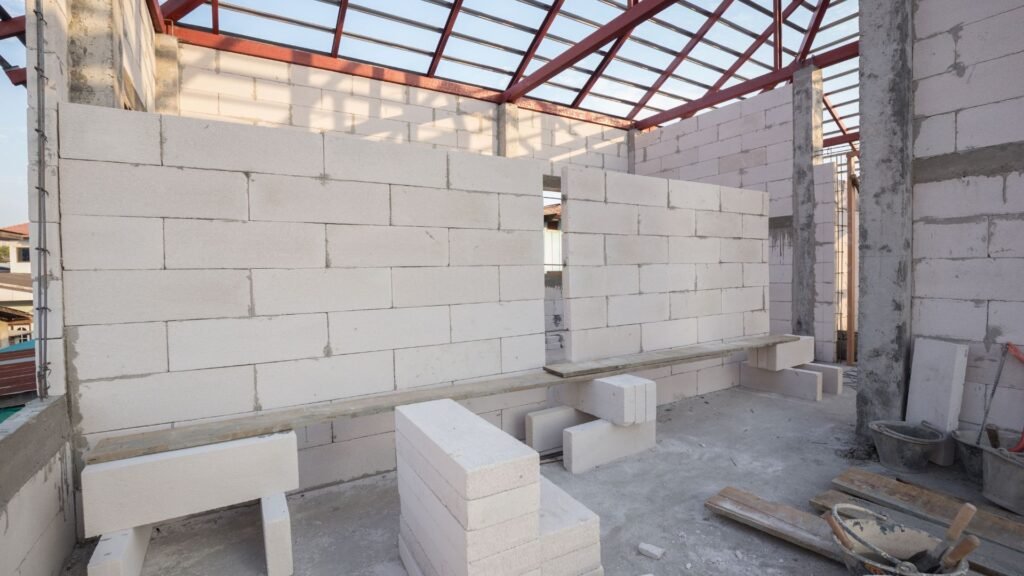
What Affects The Price Of Concrete Blocks?
If you’re planning a construction or landscaping project, it helps to know why concrete block prices can vary so much. Understanding what drives the cost will help you plan better, compare quotes more accurately, and avoid overpaying. Below are the key factors that influence concrete block prices across New Zealand.
Quantity Ordered (Bulk vs. Small Orders)
The number of blocks you purchase plays a major role in how much you pay per unit. If you’re buying just a few for a small DIY project, expect to pay closer to the higher end of the price range. Suppliers typically offer bulk discounts to contractors or property owners placing large orders. This is especially common for orders over 500 blocks. If you’re building a wall, driveway, or foundation and need hundreds of blocks, always ask about volume pricing. It can make a big difference in your total cost.
Type And Size Of Block
Not all concrete blocks are created equal. Basic hollow core blocks are generally cheaper than solid blocks, and decorative or specialty blocks can cost even more. For example, split-face or architectural blocks may be double the price of standard ones because of their design and finish. Size also matters, larger blocks naturally cost more because they use more material. Some blocks are designed for load-bearing walls, while others are made for visual appeal. Choosing the right block for your specific project needs helps avoid spending more than necessary.
Supplier And Brand
Different suppliers set different prices based on their sourcing, brand reputation, and manufacturing scale. National suppliers like Firth or Humes might have slightly higher prices due to brand reliability and quality control, but they also offer consistency and warranties. On the other hand, smaller or local suppliers may offer better deals if you’re buying in bulk or picking up the materials yourself. Comparing at least three quotes from different suppliers is a smart move when shopping for concrete blocks.
Transport And Delivery Charges
Concrete blocks are heavy and bulky, so shipping costs can add up fast. If you’re located far from the supplier or in a rural area, expect to pay extra for delivery. Some companies offer free delivery if your order meets a certain minimum, while others charge based on distance or weight. Always ask for a detailed quote that includes delivery fees upfront. If you have access to a truck, picking up the blocks yourself can save you a few hundred dollars, especially for large orders.
Seasonal Or Demand-Based Fluctuations
Like many building materials, concrete block prices can change depending on the time of year and market demand. Prices may go up during the spring and summer months, when construction activity is at its peak. Weather disruptions, supply chain delays, and fuel costs can also cause temporary price spikes. To avoid inflated prices, consider planning your project during the off-season or locking in quotes early when prices are stable.
Knowing what affects the price of concrete blocks in NZ puts you in control. It lets you make better choices, ask smarter questions, and find the right balance between quality and cost. Whether you’re building a fence, retaining wall, or a full home foundation, factoring in these variables will help you stay on budget.
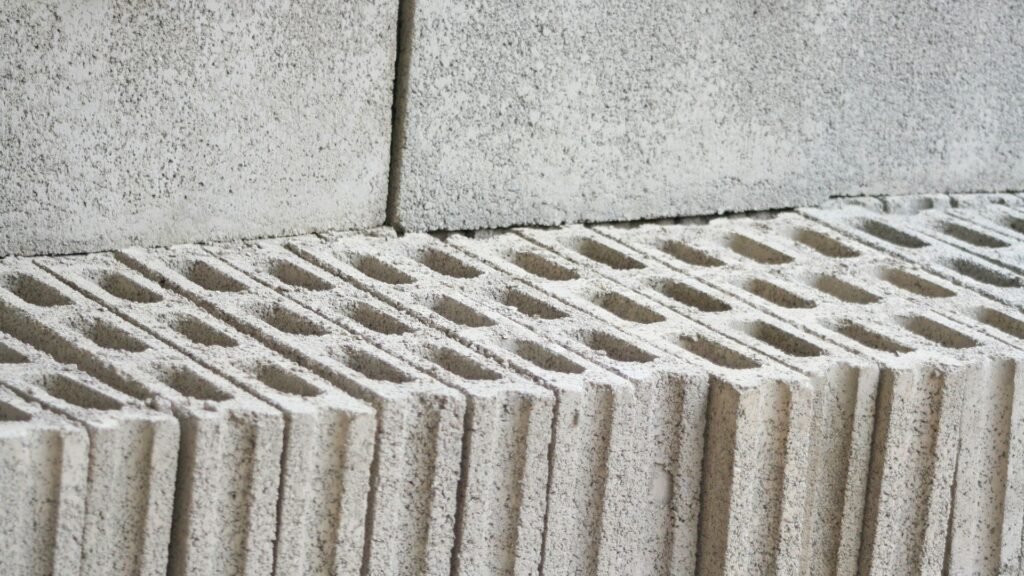
Where To Buy Concrete Blocks In NZ
If you’re planning a project that involves concrete blocks, knowing where to buy them in New Zealand can save you time, money, and stress. Whether you’re doing a DIY build or sourcing materials for a large-scale construction job, there are several reliable options across the country. Here’s a breakdown of the best places to buy concrete blocks in NZ, plus tips on what to consider before you order.
Local Hardware Stores
For smaller projects or quick pick-ups, local hardware stores are a convenient and accessible option. Two of the most popular nationwide chains are:
- Mitre 10 – Offers a variety of standard concrete blocks suitable for basic retaining walls, garden edging, and foundation work. You can browse in-store or online.
- Bunnings Warehouse – Stocks concrete blocks in different sizes, mostly aimed at DIYers and home renovators. They often have delivery services and handy guides for new builders.
Both stores are ideal if you’re only buying a small quantity or want to see the product in person before purchasing.
Trade Suppliers
If you need large volumes or specialty block types, trade suppliers offer more extensive product ranges and better pricing for bulk orders.
- Firth – One of the largest manufacturers of concrete products in NZ. Their blocks are trusted for both residential and commercial projects. They also offer technical specs and support.
- Humes Pipeline Systems – Supplies high-quality structural blocks and building solutions. Great for contractors working on infrastructure or civil engineering projects.
Trade suppliers often require you to request a quote, especially for custom orders or high-volume purchases. They may also offer account pricing for regular customers.
Online Platforms
Shopping online gives you access to a wider range of sellers and may help you compare prices quickly. Some online directories and marketplaces include:
- Trade Me – NZ’s largest online marketplace. Occasionally features concrete blocks for sale by builders, suppliers, or individuals clearing excess stock.
- Supplier Websites – Many suppliers now list their products online with request-a-quote or contact forms for bulk inquiries.
Before ordering online, always check product specs, delivery areas, and whether GST is included in the pricing.
Direct From Manufacturers
Buying directly from manufacturers can lower your per-unit costs, especially for large-scale builds. This is best for commercial projects or when standard retailers don’t carry what you need.
- Manufacturers like Firth or regional concrete block producers can often customize blocks for specific structural or aesthetic needs.
- Ordering direct may give you access to wholesale rates, especially if you’re working with a builder or contractor who has an established relationship with the supplier.
If you’re buying large quantities, it’s worth calling around or sending emails to get the best quote. Some manufacturers also provide technical support, specs, and delivery scheduling to streamline your planning.
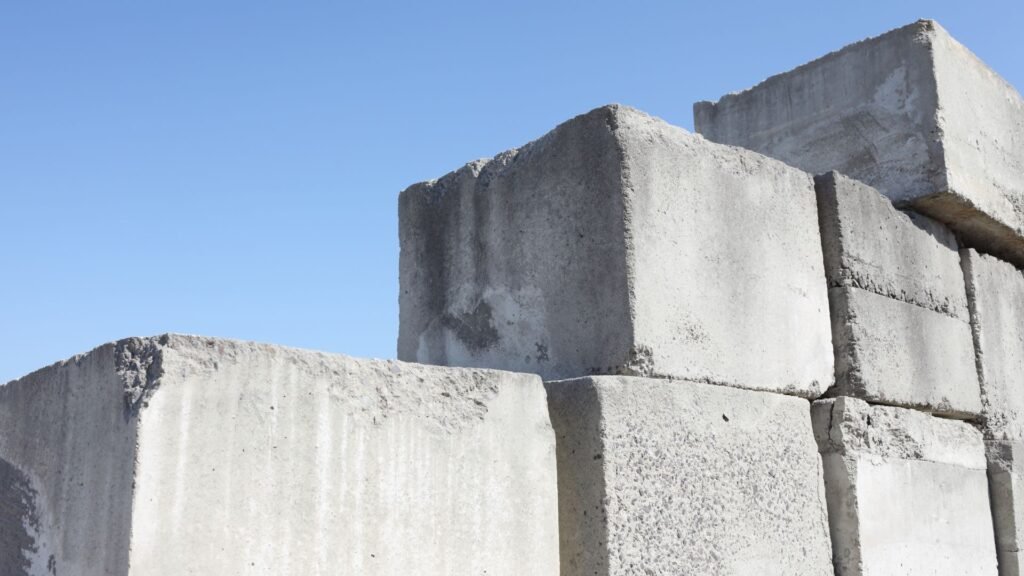
Comparing Prices: DIY Vs. Hiring A Contractor
Choosing between doing it yourself and hiring a contractor is a key decision when planning any project involving concrete blocks. Both options have their pros and cons, and the right choice depends on your budget, timeline, skills, and access to tools. Below is a breakdown to help you make an informed decision.
Cost Breakdown Of DIY
If you’re considering handling the work yourself, here’s what you’ll likely need to factor into your budget:
- Tools and Equipment: You’ll need a masonry trowel, level, wheelbarrow, concrete mixer (optional), and safety gear. If you don’t already own these, expect to spend anywhere from $150 to $500, depending on quality and quantity.
- Transport Costs: Transporting heavy concrete blocks can quickly add up. Renting a trailer or truck may cost $50–$150 per day. Multiple trips may be needed, especially if you’re sourcing blocks from different suppliers.
- Time Commitment: DIY takes longer. A first-timer might take several days for a small wall. That’s time away from work, family, or other priorities. If your time has value, factor that in as an indirect cost.
While DIY may look cheaper upfront, these hidden costs often narrow the savings gap.
Average Labor Costs In NZ For Block Laying
Hiring a contractor in New Zealand comes with a different price tag but also offers peace of mind. Here’s what you can expect:
- Per Block Rate: On average, contractors charge around $1.50 to $3.00 per block for labor, depending on block type, site conditions, and location.
- Per Square Meter: Expect to pay between $50 and $90 per square meter for basic block laying. This includes labor but not materials.
- Project-Based Pricing: Some contractors offer fixed quotes for small projects. These may range from $1,500 to $4,000+, depending on complexity and site access.
Though more expensive, hiring a professional ensures faster completion and higher build quality, especially for structural work.
When Hiring A Pro Makes More Sense
There are situations where hiring a contractor is not just better, it’s smarter:
- Larger Projects: For retaining walls, structural foundations, or load-bearing walls, professional workmanship is essential.
- Tight Timelines: If you need the job done quickly, a contractor can bring a crew and finish in a fraction of the time it would take you.
- Council Regulations: Some building work in NZ requires licensed builders. Hiring a qualified contractor avoids compliance issues or costly rework.
- No Tools Or Experience: If you’re starting from scratch with zero tools or knowledge, the cost of DIY can rival, or exceed, the price of hiring help.
Hiring a professional can actually save money in the long run by preventing costly mistakes.
Cost-Saving Tips For DIY Buyers
If you’re set on doing it yourself, here are smart ways to cut costs without cutting corners:
- Buy In Bulk: Most suppliers offer discounts for large orders. Combine orders with a neighbor or friend to reach the bulk threshold.
- Use Recycled Blocks: If structural integrity isn’t critical, consider second-hand or surplus blocks from demolition yards.
- Rent Tools Instead Of Buying: Save hundreds by renting mixers, cutters, and levels from your local hire center.
- Plan Efficiently: Measure carefully to reduce waste. Overordering leads to unnecessary expense, while underordering leads to delays.
- Watch Tutorials From Local Builders: Learn proper techniques to avoid common beginner mistakes that can ruin your work or waste materials.
By preparing well and sticking to a plan, you can complete a concrete block project on your own and still get solid results.
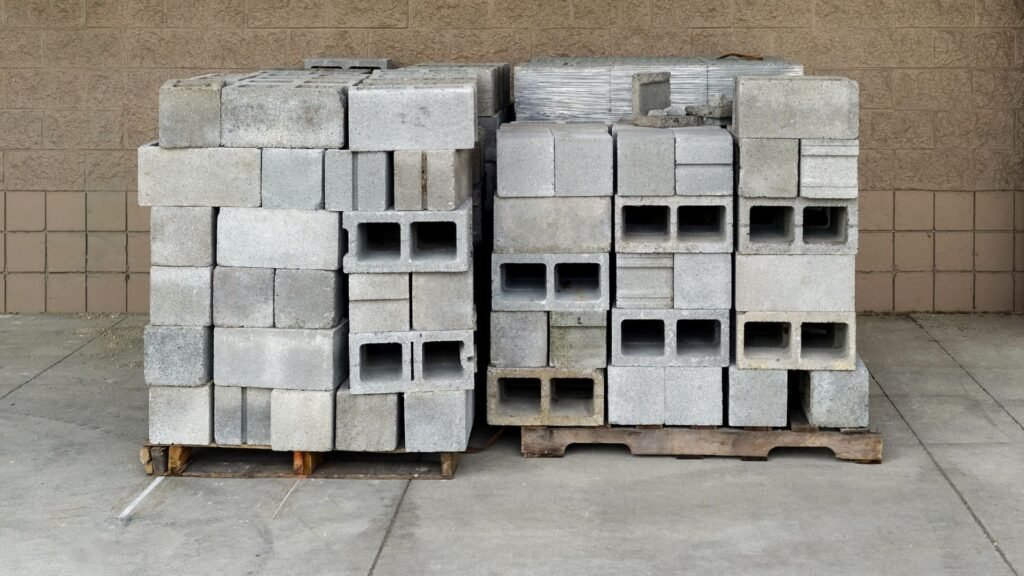
Additional Costs To Consider
When budgeting for concrete blocks in New Zealand, many people focus only on the price per block. But that’s just the starting point. Several additional costs can sneak up on you if you’re not prepared. These extra expenses can impact your final budget more than you expect, especially for larger or more complex projects. Here’s a breakdown of the most common hidden or overlooked costs you should keep in mind before starting.
Mortar, Steel Reinforcements, And Tools
Laying concrete blocks isn’t just about stacking them. You’ll need mortar to bond the blocks, and that comes with its own cost. Depending on your project size, you may need multiple bags of pre-mix mortar or even a custom mix prepared on-site. On top of that, steel reinforcements like rebar are often required for structural stability, especially in load-bearing walls or retaining structures. Don’t forget about tools either. Whether it’s trowels, string lines, levels, or a concrete mixer, even basic tools can add up if you’re starting from scratch.
Delivery Or Site Access Charges
Suppliers often charge extra for delivery, especially if you’re ordering a small quantity or live in a rural area. These fees vary by distance and volume. Another thing to check is your site’s accessibility. If the delivery truck can’t get close enough, you may need to pay for additional handling or equipment, like forklifts, to move the materials where they’re needed. It’s a common cost people overlook until the last minute.
Waste Removal
Every construction project generates waste, broken blocks, empty bags, cuttings, and more. If you’re managing the project yourself, you’ll need a way to dispose of this debris. Some councils have specific rules about construction waste disposal, and skip bin hire isn’t free. Even if you’re hiring a contractor, make sure to clarify who is responsible for cleanup and whether disposal fees are included in their quote.
Council Permits Or Inspections
Depending on the size and type of your project, you may need to get council approval or schedule inspections. For example, structural walls or boundary fences in certain areas often require permits. These permits come with application fees, and inspections may be needed during or after construction. Failing to get the right approvals can lead to fines or having to redo work, which ends up costing more.
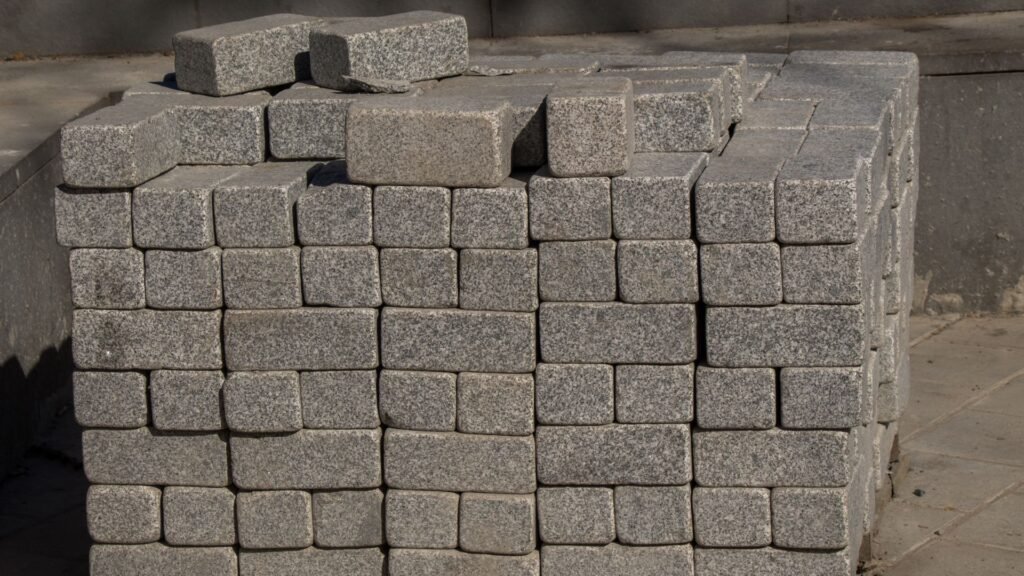
How To Get The Best Deal On Concrete Blocks
Getting the best deal on concrete blocks in New Zealand takes more than just picking the lowest price. It’s about knowing where to look, when to buy, and how to ask the right questions. Whether you’re building a retaining wall, a garden feature, or a full-scale structure, every dollar you save adds up. Here’s how you can make smart decisions and cut costs without sacrificing quality.
Compare Quotes From Multiple Suppliers
Start by getting at least three quotes from different suppliers. Prices can vary depending on location, stock levels, and brand. Some suppliers include delivery in the cost, while others charge extra. Comparing quotes side by side helps you understand the full cost, not just the per-block price. Ask for a detailed breakdown so you know exactly what you’re paying for.
Don’t just stick to big-name chains. Smaller, local suppliers may offer better prices, especially if they manufacture the blocks themselves or sell surplus stock. Also, consider asking builders or contractors in your area for supplier recommendations. They often know who offers the best rates and reliable service.
Ask About Bulk Or Trade Discounts
If you’re buying in large quantities, don’t be shy, ask for a discount. Most suppliers offer bulk pricing, especially for orders over a few hundred blocks. Even if you’re not a contractor, acting as your own project manager and buying in volume can give you leverage.
Trade discounts aren’t just for professionals. Some suppliers allow regular customers, DIYers, or first-time buyers to access trade pricing if they’re purchasing enough materials. Be upfront about your project size and timeline, it could work in your favor.
Buy During Off-Peak Seasons
Construction materials often follow seasonal trends. Prices may rise during summer when demand is high and fall during colder months when projects slow down. If your timeline allows, buy materials in autumn or early winter. Suppliers may be more willing to cut deals to move stock during quieter periods.
Also, watch for end-of-financial-year sales or supplier clearance events. Many companies try to clear inventory around March or June, depending on their accounting cycle. Planning ahead can help you take advantage of lower seasonal pricing.
Check Clearance Or Discontinued Stock
Clearance items are one of the easiest ways to save money on concrete blocks. These could be discontinued models, overstock from cancelled projects, or slightly imperfect blocks that still perform well. Most suppliers have a clearance section in-store or online, take the time to ask or check.
Don’t rule out second-hand or leftover stock from other builds either. Some homeowners and builders sell extra blocks through local classifieds or marketplace sites at a fraction of the retail cost. Just make sure they meet your project’s structural needs.
By comparing quotes, asking the right questions, buying at the right time, and looking out for deals, you can significantly reduce your total cost. The key is to be proactive, patient, and informed. Small savings on each block can turn into hundreds of dollars saved on your full project.
Ready to Start Your Project? Explore quality concrete blocks at competitive prices. Visit us to get started or request a free quote today.
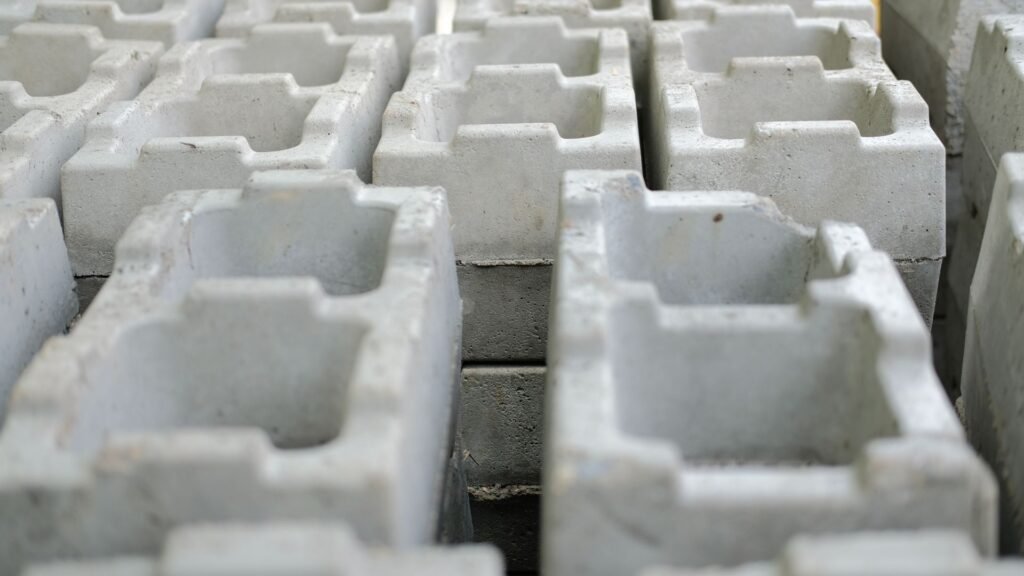
FAQs: About Concrete Block Price In NZ
How much do concrete blocks cost in New Zealand?
Concrete blocks in NZ typically cost between $2.50 and $5.50 per block. Prices vary based on size, type, supplier, and region. Bulk purchases often come with discounts, and delivery fees may apply.
What affects the price of concrete blocks?
Factors include the type and size of the block, order quantity, supplier pricing, location, and additional services like delivery. Specialty blocks or decorative styles can cost more than standard ones.
Are concrete blocks sold per block or per square meter?
Most suppliers sell them per block. However, for estimating coverage and total project cost, it’s helpful to calculate the number of blocks needed per square meter based on block dimensions and wall thickness.
What size are standard concrete blocks in NZ?
The most common size is 390mm x 190mm x 190mm. Other sizes are available for specific applications like corners, lintels, or decorative designs.
Where can I buy concrete blocks in NZ?
You can buy them from major hardware chains like Mitre 10 and Bunnings, as well as trade suppliers like Firth and Humes. Some manufacturers also sell directly to consumers or contractors.
Is it cheaper to buy concrete blocks in bulk?
Yes. Most suppliers offer lower rates for large-volume purchases. Bulk buying reduces per-unit cost and may qualify for free or discounted delivery.
How many concrete blocks do I need for 1 square meter?
You’ll need about 12 to 13 standard blocks per square meter, depending on the mortar joint size. Always order extra to account for cuts and waste.
Can I use concrete blocks for both structural and decorative purposes?
Yes. Hollow and solid blocks serve structural roles, while split-face and decorative blocks enhance aesthetics. Ensure the block type matches your project requirements.
What other costs should I plan for besides block price?
Consider the cost of mortar, reinforcing materials, delivery charges, labor (if hiring), tools, and any required council approvals or permits.
Are concrete blocks a good alternative to timber or bricks?
Concrete blocks are durable, fire-resistant, and low-maintenance. They’re often more affordable than bricks and sturdier than timber, making them a solid choice for long-term builds.
Conclusion
Concrete blocks remain a reliable and cost-effective choice for a wide range of building projects in New Zealand, whether you’re planning a simple retaining wall or a full-scale construction job. On average, concrete block prices in NZ range from $2.50 to $5.50 per block, with final costs influenced by factors like block type, quantity, supplier, and location. Knowing what affects the price helps you plan your budget better and avoid unexpected expenses. Whether you’re buying from major retailers, local trade suppliers, or direct from manufacturers, it’s always smart to compare prices, check for bulk discounts, and factor in additional costs like delivery or tools. Take time to plan your project carefully, assess your needs, and gather multiple quotes before making a purchase. This way, you’ll get the best value and ensure your project stays on track from the start.

